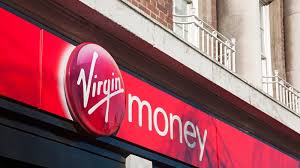CYBG buys Virgin Money

A HANDFUL OF lenders dominate British banking. Just four hold 70% of Britons’ main current (checking) accounts. Undaunted—and encouraged by financial supervisors and competition watchdogs—a platoon of challengers is nonetheless taking on the giants, on the high street and online. On October 15th one of them, CYBG, established itself as the leader of that pack, by completing its takeover of another, Virgin Money, for £1.7bn ($ 2.2bn).
With £84bn in assets and £59bn in deposits, CYBG is still dwarfed by the heavyweights of British banking (see chart). But the deal spreads its reach southward, adding Virgin’s 70-odd branches to those of Clydesdale, a 180-year-old Scottish bank, and Yorkshire Bank, founded in 1859. (Eventually all will bear the supposedly trendier Virgin name.) CYBG also expects to save £120m in annual operating costs by 2021. And it is taking pains to avoid the computing pitfalls that befell a rival, TSB, earlier this year. TSB’s switchover to a new platform left customers fuming and its chief executive abruptly out of a job.
The takeover, says Christopher Cant of Autonomous, a research firm, is well timed. Not only is TSB back on its heels, but CYBG is buying extra scale just when growth is getting harder to come by, especially for the challengers. Financing is getting dearer. The Bank of England’s Term Funding Scheme, which supplied funds at an interest rate close to the central bank’s benchmark, has ended. Competition for deposits heated up with the arrival last month of Marcus, an online bank owned by Goldman Sachs: its interest rate of 1.5% for instant-access savings tops best-buy tables. At the end of August, according to the Bank of England, the average rate on instant-access accounts was just 0.43%.
At the same time, lending rates have not kept pace. As new loans replace old ones—eg, as homeowners roll over two-year fixed-rate mortgages—margins are shrinking. The spread between the average two-year rate for a loan worth 75% of a house’s value and two-year swap rates has declined from 130 basis points to 62 in the past two years. Mr Cant notes that for riskier buy-to-let loans, in which some smaller challengers specialise, the margin squeeze has been even more acute.
Besides CYBG, TSB and Metro Bank, a newcomer which has been rolling out branches across southern England, Britain has a host of online-only retail banks that are clocking up impressive numbers. Revolut, which first made a splash with keenly priced foreign exchange, has just over 3m customers, about 1.3m of them in Britain. Monzo recently passed 1m accounts and Starling Bank 250,000. N26, a German online bank, set up shop on October 4th.
Whether the challengers, great or small, are bloodying the big banks is hard to say. According to CASS, a service for switching accounts between banks, 631,000 retail and small-business accounts were moved in the first eight months of the year. That is about 1% more than in the same period in 2017 but 9-20% less than in 2014-16. Craig Donaldson, Metro’s chief executive, thinks these figures mask the rise of “multibanking”: because digital technology has made opening accounts and moving money so easy, banks are focusing on becoming customers’ “primary card”. Still, loosening the big banks’ grip will be a long job.
This article appeared in the Finance and economics section of the print edition under the headline “Lightweight to middleweight”